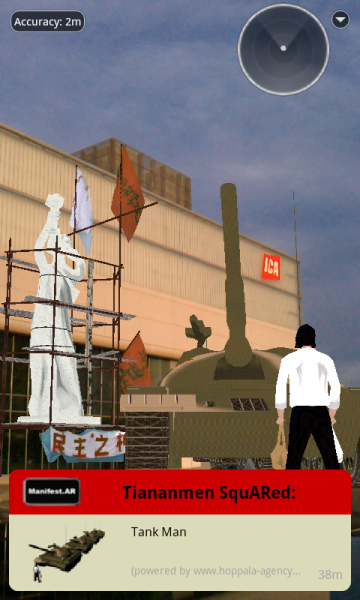Zhang Ming: On March 5, a major traffic accident occurred outside the gate of Jiangxi University of Finance and Economics in Nanchang in which a sedan collided with a bus before careening off into a crowd of people, killing two students and injuring four. Among those killed was a female graduate student from the university. Arriving at the scene, the police failed to follow procedure. They did not secure the scene, nor did they test the blood alcohol content of the sedan driver.
It was only after classmates of the dead students made a stink online, posting an account of the incident on China’s domestic Twitter-like “microblogs,” or
weibo, and drawing nationwide attention to the case, that the government in Nanchang decided to act.
Hours after the accident, police finally tested the driver’s alcohol level, which still showed him over the legal limit. He was charged with driving under the influence (酒驾), avoiding the more serious charge of drunken driving (醉驾). But you can just imagine how the test might have come out had police followed procedure at the scene. And without the interference of online public opinion pressure, the driver might have gotten off scott free.
There was more to this story than a simple procedural hiccup, however. Why had police released the driver in the first place? Because he is, as it turns out, the current vice-president of Jiangxi University of Finance and Economics, Liao Weiming (廖为明).
This case is arguably more serious than
the Li Gang incident in Hebei province, which sparked so much anger across China in October last year after the son of an influential police official killed a female student while driving recklessly on the campus of Hebei University.
Fortunately, microblogs now offer us a new means of focusing attention on cases like this one. I came across the post on this case too, and I passed it along to my own microblog followers, doing my part to ensure it got the attention it deserved. If it weren’t for the power of the microblog, Vice-president Liao would have walked away from all responsibility. But of course the underlying issue here is how the rules can be bent in cases like this one, even over a traffic accident, to serve the interests of the powerful.
We live in the age of the automobile in China, and we see many of our society’s problems manifested over luxury sedans and the special powers and privileges they have come to symbolize. No one dares lift a finger when traffic laws are broken by the powerful.
The violator need only mention that he knows such-and-such a person in the traffic police division and the whole matter is neatly smoothed over. When this is how things really work, what good is it to announce a national campaign against drunk driving?
In the olden days, Chinese waited for the benevolent official of myth and fiction to come and deliver justice. Today, people wait for microblogs to apply pressure, administering some semblance of justice.
In a sense, of course, this is a mark of progress. But why is it that simple justice can only come if pressure from microblogs are brought to bear? Do police in Nanchang not know how to handle a traffic accident? That’s not it, of course. They don’t need people teaching them how to do their jobs through microblogs.
What microblogs do is apply public opinion pressure. And if truth be told, the authorities in Nanchang don’t exactly live in fear of public opinion. To the extent that online public opinion serves any purpose at all, this is only because the superiors of those involved are keen to manage the possible impact on their own careers.
All of us know not every case of wrongdoing can garner the attention in China’s microblog sphere necessary to elicit action. There are many more cases, perhaps more tragic than this one, that may fail to heat up for all sorts of reasons — people can’t make out what’s true or not, or there aren’t the right elements to stir public emotion.
We cannot rely on microblogs to bring us social justice. If those charged with upholding the law look first to upholding their own interests, anger and injustice will continue to build up in society.







